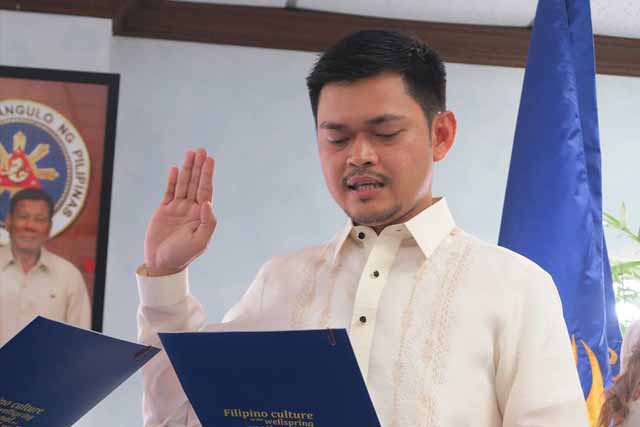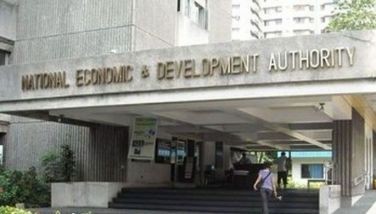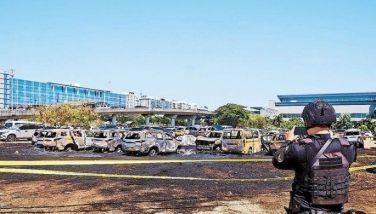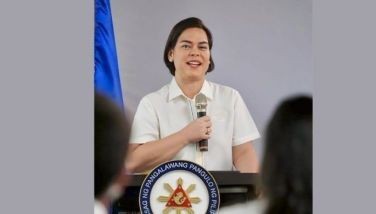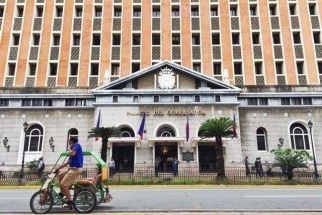Librarians on the Philippines' need for more libraries and librarians
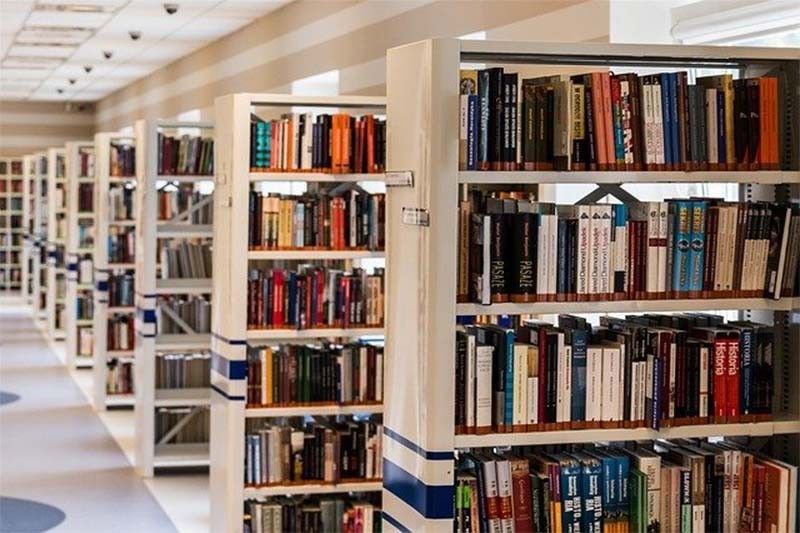
MANILA, Philippines — The National Library of the Philippines last week pushed for the creation of public libraries in every local government unit before the House Committee on Basic Education and Culture.
The proposal was, however, met with criticism after Rep. Evelina Escudero (Sorsogon, 1st District) and NLP Director Cesar Gilbert Adriano discussed how a lack of trained librarians in the could be a challenge.
“If that is the case, they would need licensed librarians. I don’t think we have enough librarians on hand. There are few colleges or universities offering Library Science course,” Escudero said during the virtual meeting.
“Kasi kamukha samin sa Bicol, lahat ng universities namin (Like in our place in Bicol, all of our universities) we don’t offer library science. I don’t know in Metro Manila kung maraming (if there are several) schools are offering this particular course,” she added, in mix English Filipino.
Adriano, who had previously been criticized for holding the highest post in the NLP despite not being a licensed librarian, concurred and claimed there are no schools in the provinces offering Library and Information Science.
“I don’t know how to bring this especially since those in the province have no course offering librarianship there,” the NLP director said in mixed English and Filipino.
Asked how he plans to address this deficiency in librarians, the NLP head then recommended that teachers, even those who are not licensed librarians, should be included as personnel qualified to manage public libraries and reading centers.
Library and Information Science is a four-year undergraduate course and is a separate field of study from Education.
Adriano’s suggestion sparked discourse within the librarian community, with several citing Republic Act 9246 or the “Philippine Librarianship Act of 2003”, which requires that “only qualified and licensed librarians shall be employed as librarians in all government libraries.”
The NLP director quickly responded that he does not advise the illegal practice of librarianship and said that he is aware of the law for librarians.
There are librarianship schools in Bicol region
In an episode of radio program LibRadio that aired on DZUP on Tuesday afternoon, a number of librarians spoke up on the issue anew.
Lourdes David, a member of the Professional Regulatory Board for Librarians and who earlier corrected Adriano for claiming librarianship courses are not offered outside Metro Manila, said that Ateneo de Naga University in Camarines Sur is just one of many schools that offer LIS in the Bicol region.
Mary Grace Golfo-Barcelona, dean of the University of the Philippines School of Library and Information Studies backed David and said there are six academic institutions teaching librarianship in Bicol.
"There are around 80 schools offering LIS, some are combination of BLIS at MLIS (Master of Library and Information Science)," she said.
She also said that there is at least one academic institution offering LIS programs in each region. The National Capital Region has the highest number of library schools with at least 12.
"So, it’s really wrong to say there are none," Barcelona said.
David, on the other hand, said Adriano’s statement that there are no library schools in the provinces was “irresponsible.”
Adriano, in response to statements from licensed librarians, earlier issued a statement saying he had no intention of discrediting other provincial schools offering LIS.
The state of librarianship in the Philippines
While the librarians disagree with Adriano on the number of library schools, they agree that there is indeed a shortage of librarians in the country.
“Regarding kung kulang o hindi, kulang talaga. Maraming special libraries, public libraries, wala tayong mailagay,” David said.
(Regarding if there is a scarcity or none, there is indeed scarcity. There are many special libraries, public libraries, we don’t have anyone to assign)
David shared that there are more or less registered 9,000 librarians in the country. Of these, the practicing librarians are “much much less.”
“There are several who choose to work abroad, many also retired while others are not renewing their license,” the PRC official said.
Meanwhile, Barcelona said that there are enough library schools in the country, it is the number of students who take them that is low.
Barcelona cited a 2018 survey of the Philippine Librarians Association Inc. with 670 respondents that stated that only 88%, or 589, of the respondents are working in libraries.
A total of 288 are working in government while 70 are working in museums, cultural institutions and non-government organizations. Only five percent or 29 of them are working in public libraries.
At least 645 of the respondents were licensed librarians while others are graduates of other programs.
Can the national government hire unregistered librarians?
David said that there are only an estimated of 10% supply of librarians.
To compensate for the undersupply of librarians, the PRC official said that libraries can hire non-librarians but not for the librarian post. David stressed that they may be assigned as library staff, under the supervision of a qualified registered librarian.
She said that this is also mandated in far-flung areas.
Why librarianship should be regulated
Despite the insufficiency in librarians, David said that there is a need for the profession to be regulated because there are specific skill sets and knowledge for registered librarians, citing that they undergo a lot of training and take advanced courses to keep up with the current trends in the profession.
“We studied a lot to become a librarian. We even have what we call Licensure Examination, right? So, you have to regulate it, so that you know that only the qualified people will sit as librarians in any library,” she said, in a mix of English and Filipino.
David said the Board for Librarians is designated to give the Librarian Licensure Examination to make sure that only qualified applicants get their licenses.
Members of the board also go around the country to survey libraries in the higher education sectors as well as public and school libraries to check if librarians there are licensed.
Sanctions for violating RA 9246
The PRC official reiterated that the practice of librarianship is governed by RA 9246 and carries penalties.
"What are the sanctions? It’s in the law. You may be imprisoned, or be fined but it depends. The law indicates the scope of librarianship and what they can’t do," David said.
Future of librarianship in the country
Moving forward, librarian educators wish to promote librarianship to Filipinos by making them aware of their roles in society.
David advocates making librarianship attractive to the youth. UP SLIS Dean Barcelona also said social media must be utilized to raise awareness on the librarianship practice in the country.
Barcelona said that social media reach has been evident especially during the time of pandemic.
In view of this, UP SLIS faculty members are promoting their program via video sharing platform YouTube.
“This is one way to let the public know who are the members of the faculty of Library and Information Science. To let them know about the program and what librarians do,” the UP SLIS dean said.
“These are the things that SLIS is doing, aside from the fact that we encourage and inform them when they ask about the course. You take time to explain so they can understand the importance of librarians and libraries.,” she added.
Additional libraries
Meanwhile, Vernon Totanes, the director of Ateneo de Manila University's Rizal Library, who has been vocal in opposing the NLP directors’ suggestions said that he also wants to have libraries all over the Philippines.
"I would just like to add because they might say that we’re just complaining. We want libraries all over the Philippines. There is actually RA 7743 that mandates this. But how do we implement it if we don’t have the numbers. The answer is simple: We do it slowly," he said.
Totanes suggested that the national government should first focus on building libraries and reading centers in provinces and after a few years focus on cities.
"My feeling is that library schools will react—the students, parents will encourage their children to enroll," he said.
Under the law, the NLP and the Department of Interior and Local Government is supposed to establish public libraries in cities, towns and districts, and reading centers in barangays.
"Provided, That the establishment of such libraries and reading centers shall be based on the development program of the National Library," the law also says.
The NLP head last week said the agency has already committed to provide initial book allocations to municipal libraries and to barangay reading centers that have applied for status as newly-established public libraries.
- Latest
- Trending






